Tech Industry
Latest about Tech Industry
-
-
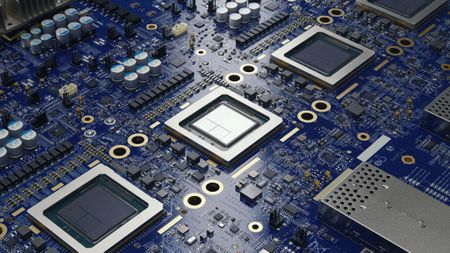
Former Google engineer convicted of stealing GPU and TPU trade secrets for 'Chinese interests'
By Luke James Published -

SpaceX plans to deploy 1-million-satellite Orbital Data Center system
By Jowi Morales Published -

Starlink uses emergency fix to block Russian drones using its devices to bomb Ukraine
By Jowi Morales Published -

Shanghai scientists create computer chip in fiber thinner than a human hair, yet can withstand crushing force of 15.6 tons
By Mark Tyson Published -

Malicious OpenClaw ‘skill’ targets crypto users on ClawHub — 14 malicious skills were uploaded to ClawHub last month
By Luke James Published -

Wisconsin towns reportedly signed secret NDAs for billion-dollar data center deals
By Luke James Published -

Nvidia's plan to invest $100 billion in OpenAI appears unlikely
By Jowi Morales Published
-
Explore Tech Industry
Artificial Intelligence
-
-

Wisconsin towns reportedly signed secret NDAs for billion-dollar data center deals
By Luke James Published -

Nvidia's plan to invest $100 billion in OpenAI appears unlikely
By Jowi Morales Published -

World's largest particle accelerator begins warming thousands of local French residents with waste energy from the 16-mile Large Hadron Collider
By Ben Stockton Published -
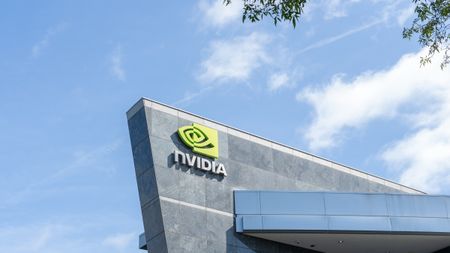
Nvidia says Chinese military dependence on American technology would be 'nonsensical'
By Stephen Warwick Published -

Nvidia CEO Jensen Huang says China hasn't approved H200 imports yet
By Stephen Warwick Published -
 Premium
PremiumSK hynix invests $10 billion in creating a U.S.-based 'AI solutions' company
By Jon Martindale Published -

'Thermodynamic computing' could slash energy use of AI image generation by a factor of ten billion, study claims
By Stephen Warwick Published -
 Premium
PremiumIntel's roadmap adds mysterious 'hybrid' AI processor featuring x86 CPUs, dedicated AI accelerator, and programmable IP
By Anton Shilov Published -
 Premium
PremiumExploring Clawdbot, the AI agent taking the internet by storm
By Zak Killian Published
-
Big Tech
-
-

Inventor of the World Wide Web thinks it can still be saved
By Bruno Ferreira Published -
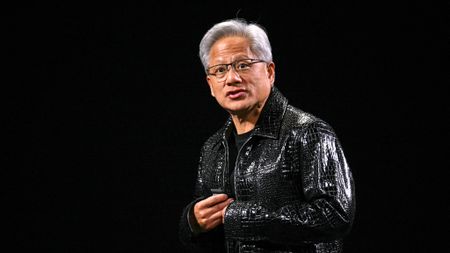
Nvidia pumps another $2 billion into CoreWeave and announces standalone availability of Vera CPU
By Bruno Ferreira Published -

OpenAI could reportedly run out of cash by mid-2027
By Bruno Ferreira Published -

Search pioneer AltaVista’s star shone bright with a clean and minimal UI 30 years ago
By Mark Tyson Published -

Economic analysis of orbital data centers brings the idea down to Earth
By Bruno Ferreira Published -

Cloudflare says it has fended off 416 billion AI bot scrape requests in five months
By Jowi Morales Published -
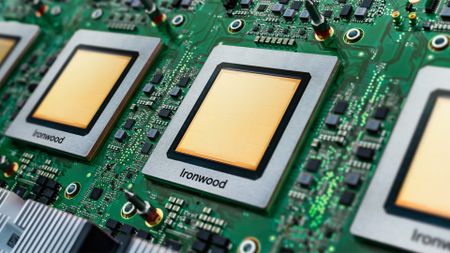
Nvidia says it’s ‘delighted’ with Google’s success, but backhanded compliment says it is ‘the only platform that runs every AI model’
By Jowi Morales Published -

Trump administration touts Genesis Mission to try and win the AI race—White House compares scope of its initiative to the Manhattan Project
By Bruno Ferreira Published -
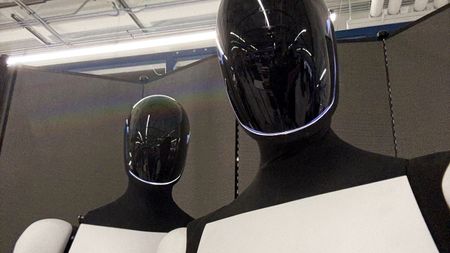
Elon Musk claims he will 'build chips at higher volumes ultimately than all other AI chips combined'
By Bruno Ferreira Published
-
Cryptocurrency
-
-

Four arrested following $1.6 million NFT heist in the Netherlands
By Jowi Morales Published -

Fear that quantum computing is on the cusp of cracking cryptocurrency's encryption lead to downgrades
By Jowi Morales Published -

Report estimates $17 billion worth of bitcoin was stolen in 2025 alone
By Aaron Klotz Published -

This $2,000 Bitcoin mining water heater can pay for itself by slashing your energy bills, company claims
By Mark Tyson Published -

Americans lost $333 million to Bitcoin ATM fraud in 2025
By Jowi Morales Published -

Russia cracks down on 'illegal' cryptomining with prison terms up to five years
By Anton Shilov Published -

World’s oldest Bitcoin Mining Pool celebrates 15th anniversary, has mined 1,311,339 bitcoins worth $115 billion
By Mark Tyson Published -

12 years ago an iconic whisky-fuelled rant coined the term HODL via a drunken mispelling
By Mark Tyson Published -

North Korean hackers stole record $2 billion in crypto in 2025, including single heist worth $1.5 billion, report claims
By Jowi Morales Published
-
Cybersecurity
-
-

Malicious OpenClaw ‘skill’ targets crypto users on ClawHub — 14 malicious skills were uploaded to ClawHub last month
By Luke James Published -
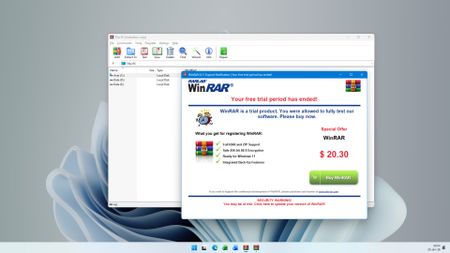
WinRAR exploit reportedly remains widely-used by China and Russia state actors despite patch
By Jowi Morales Published -

AI-assisted cybersecurity team discovers 12 OpenSSL vulnerabilities, claims humans are the limiting factor — some vulnerabilities have been around for decades
By Aaron Klotz Published -

Microsoft gave customers' BitLocker encryption keys to the FBI
By Jowi Morales Published -

Steam client allegedly continues sharing your status with your friends even if you set it ‘Offline,’ report claims
By Jowi Morales Published -

China tells entities to ditch U.S. and Israeli cybersecurity software
By Bruno Ferreira Published -
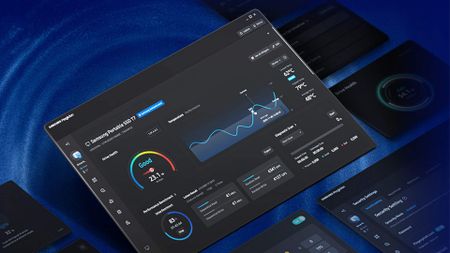
Samsung Magician SSD software ‘High Severity’ vulnerability patched — upgrade to the newest v9.0.0 to prevent potential DLL hijacking and privilege escalation
By Mark Tyson Published -

U.S. cybersecurity experts plead guilty for ransomware attacks, face 20 years in prison each
By Jowi Morales Published -

FBI issues wanted notice for alleged North Korea-linked remote IT workers accused of $900,000 crypto theft
By Luke James Published
-
Manufacturing
-
-
 Premium
PremiumChina moves into manufacturing disruptive new semiconductor glass substrates as processor packaging competition intensifies
By Luke James Published -

Intel shows off leading-edge tech with massive AI processor test vehicle
By Anton Shilov Published -
 Premium
PremiumOngoing trade war has TSMC and Taiwan stuck between a rock and a hard place
By Bruno Ferreira Published -

Nvidia CEO denies US wants to shift 40% of Taiwan's chipmaking capacity to America
By Anton Shilov Published -
 Premium
PremiumASML projects $71 billion in revenue by 2030, as demand for EUV lithography machines intensifies due to AI boom
By Anton Shilov Published -
 Premium
PremiumSamsung's Taylor, Texas fab could herald a breakthrough for the chipmaker, company plans 2026 risk production
By Anton Shilov Published -

Bill Gates-backed silicon photonics startup develops optical transistors 10,000x smaller than current tech
By Jowi Morales Published -
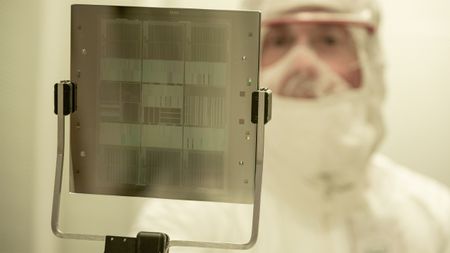
Intel says it has two prospective customers for 14A
By Anton Shilov Published -
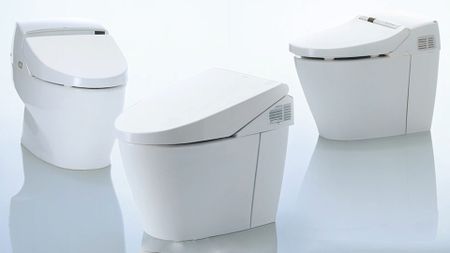
Toilet maker Toto scores a royal flush as share price rises due to AI demand in unlikely chipmaking side-gig
By Mark Tyson Published
-
Quantum Computing
-
-

Quantum computing firm dangles $22,500 Bitcoin prize
By Mark Tyson Published -
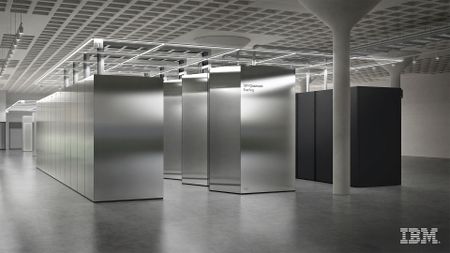 Premium
PremiumIBM and Cisco agree to lay the foundations for a quantum internet
By Luke James Published -

New Chinese optical quantum chip allegedly 1,000x faster than Nvidia GPUs for processing AI workloads
By Aaron Klotz Published -

IBM's boffins run a nifty quantum error-correction algorithm on conventional AMD FPGAs
By Bruno Ferreira Published -

Trump administration to follow up Intel stake with investment in quantum computing, report claims
By Anton Shilov Published -
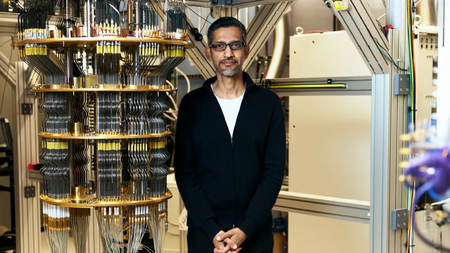
Google's Quantum Echo algorithm shows world's first practical application of Quantum Computing — Willow 105-qubit chip runs algorithm 13,000x faster than a supercomputer
By Bruno Ferreira Published -
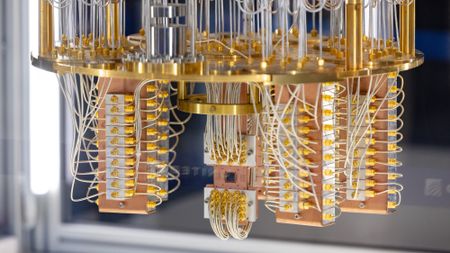
Harvard researchers hail quantum computing breakthrough with a machine that can run for two hours
By Jowi Morales Published -

Quantum internet is possible using standard Internet protocol
By Sunny Grimm Published -
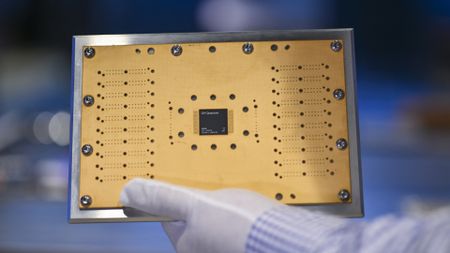
Quantum machine learning unlocks new efficient chip design pipeline
By Jon Martindale Published
-
Supercomputers
-
-

Elon Musk restarts Dojo3 'space' supercomputer project as AI5 chip design gets in 'good shape'
By Aaron Klotz Published -

AMD and Eviden unveil Europe's second exascale system
By Anton Shilov Published -

Nvidia to build seven AI supercomputers for the U.S. gov't with over 100,000 Blackwell GPUs
By Anton Shilov Published -
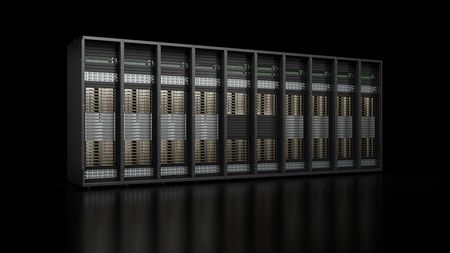
Nvidia unveils Vera Rubin supercomputers for Los Alamos National Laboratory
By Anton Shilov Published -

U.S. Department of Energy and AMD cut a $1 billion deal for two AI supercomputers
By Bruno Ferreira Published -

China's supercomputer breakthrough uses 37 million processor cores to model complex quantum chemistry at molecular scale
By Anton Shilov Last updated -
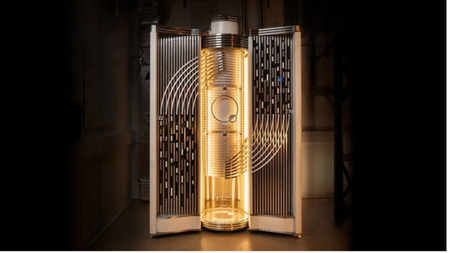
Start-up hails world's first quantum computer made from standard silicon
By Luke James Published -

Nvidia GPUs and Fujitsu Arm CPUs will power Japan's next $750M zetta-scale supercomputer
By Hassam Nasir Published -

AMD's massive GPU VRAM on its Instinct cards has broken Linux's hibernation feature
By Hassam Nasir Published
-
Superconductors
-
-

New 3D printing process could improve superconductors
By Ash Hill Published -
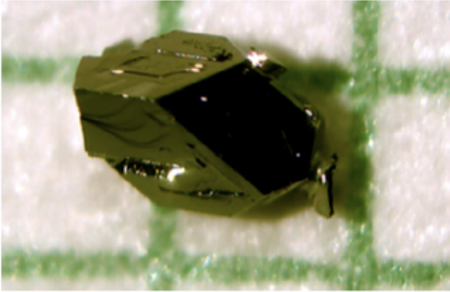
New research shows naturally occurring mineral is an 'unconventional superconductor' when purified
By Christopher Harper Published -

New research reignites the possibility of LK-99 room-temperature superconductivity
By Francisco Pires Published -
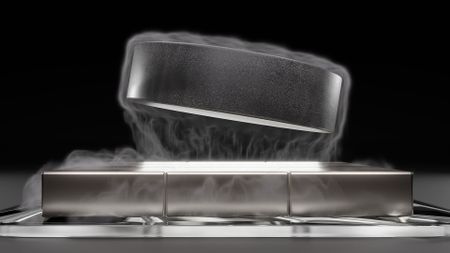
U.S. Govt and researchers seemingly discover new type of superconductivity in an exotic, crystal-like material
By Francisco Pires Published -

Nature Retracts Controversial Room Temperature Superconductor Paper (But Not LK-99)
By Francisco Pires Published -

What is a Superconductor?
By Francisco Pires Published -

MIT's Superconducting Qubit Breakthrough Boosts Quantum Performance
By Francisco Pires Published -

LK-99 Research Continues, Paper Says Superconductivity Could be Possible
By Francisco Pires Published -

Is LK-99 a Superconductor After All? New Research and Updated Patent Say So
By Francisco Pires Published
-
More about Tech Industry
-
-

Nvidia's plan to invest $100 billion in OpenAI appears unlikely
By Jowi Morales Published -
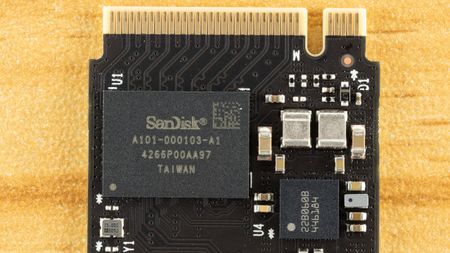
SanDisk stock price jumps by 1,500% in almost a year
By Jowi Morales Published -

World's largest particle accelerator begins warming thousands of local French residents with waste energy from the 16-mile Large Hadron Collider
By Ben Stockton Published
-